Health, happiness, and how to beat Tadej Pogačar - Thor Hushovd on the Uno-X team mentality
Uno-X's general manager talks rider weight, national team identity, and why altitude camps don't work if you're miserable
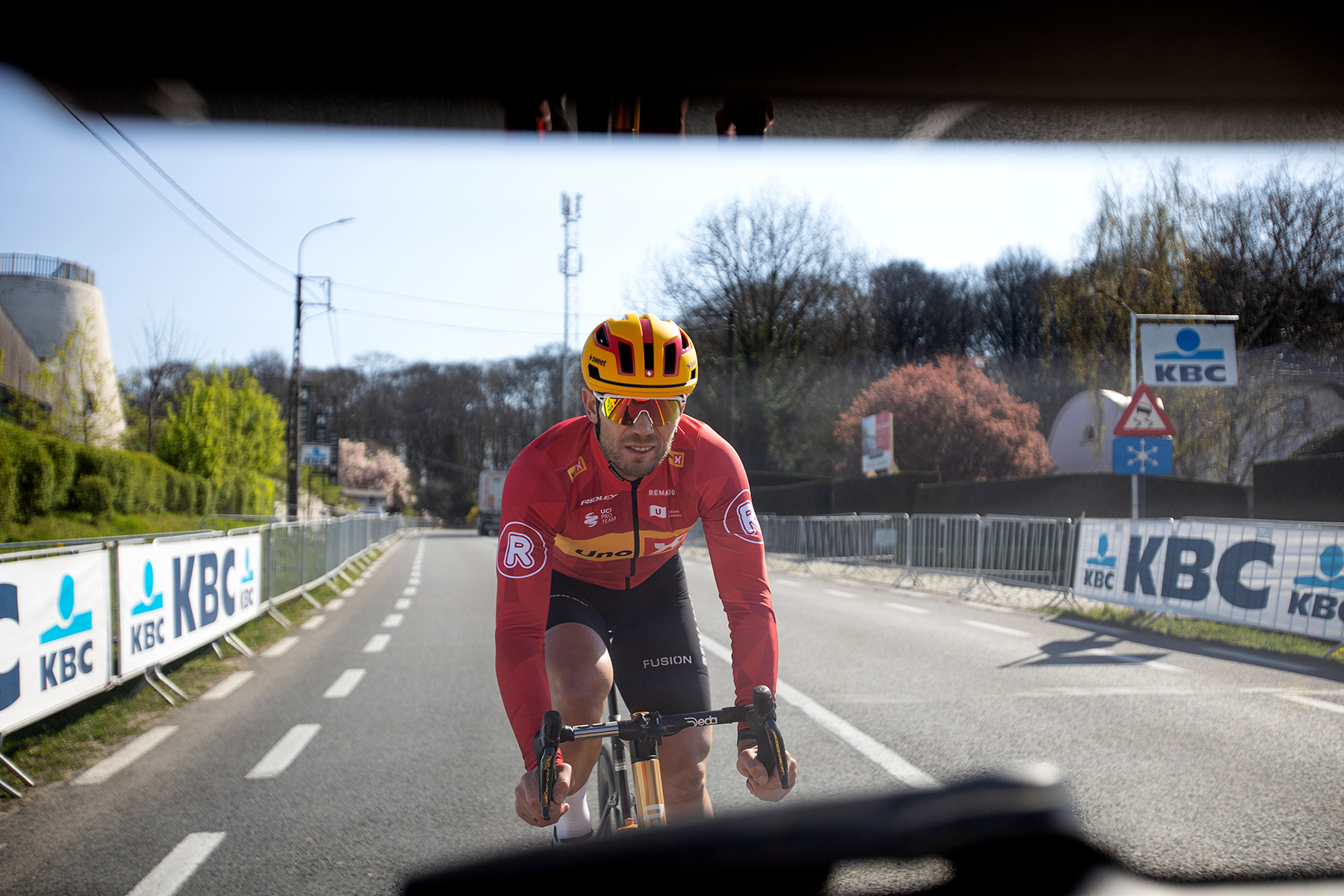
There’s something different about Uno-X Mobility. I can’t put my finger on it beyond the fact that there’s a distinctly different vibe about the team, but the riders all seem happy, excited, and healthy.
Normally I spend my days in the tech team analysing bikes and equipment, where things are slightly more black and white, but on a recent trip to Belgium to test the new Ridley Noah Fast 3.0 I had the opportunity to sit down with Thor Hushovd, former world champion and now general manager of Uno-X, and dig into the soft intangibles of professional cycling, including why altitude camps don’t work if you’re miserable.
From my point of view, as a fan, the team seems upbeat. The riders are joking around and having fun on and off the bike, in stark contrast to some of the more serious team atmospheres out there. Is this a social media veneer, a deliberately cultivated team culture, or a happy accident?
“I think a big reason for this is on the men's team that we are Norwegian and Danish riders. You talk your own language, you have the same mentality," Hushovd told Cyclingnews.
"I see this because I came in here a bit more than a year ago, and I saw when we were living in the same hotel as other teams, our riders were sitting there for a long time after dinner, just sitting and talking like you said. You could see that they enjoyed being with each other and also with the staff.
"So, I think the mentality is good, good values, and the team and people seem to be happy.”
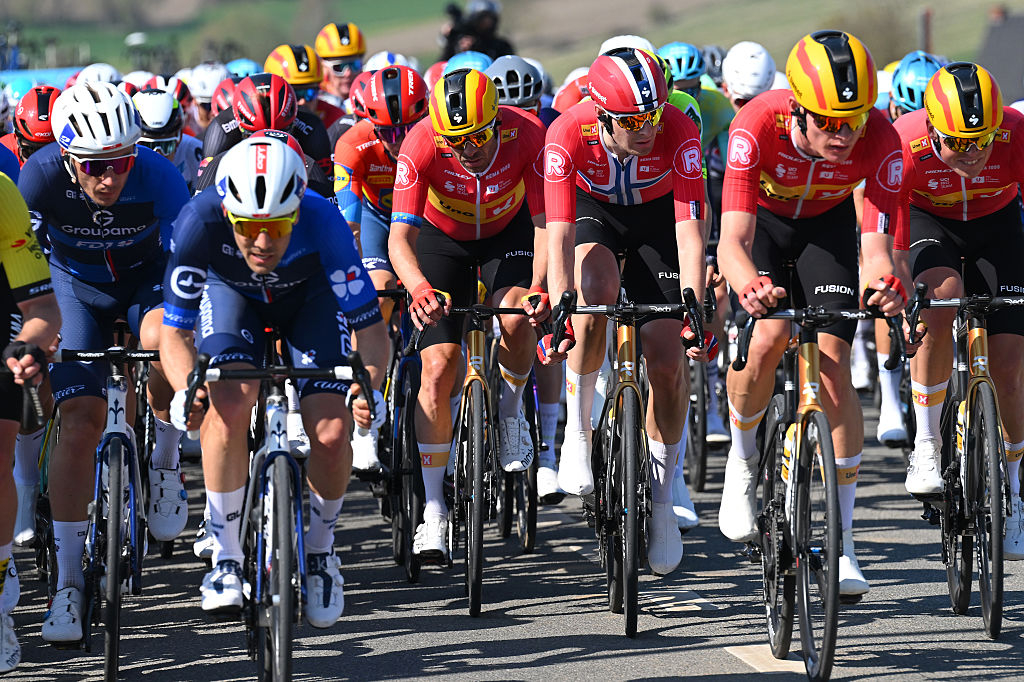
The Norwegian identity does seem to be a cornerstone of the team. With only seven of the 27 men's roster not coming from Norway (all seven of those hailing from Denmark), and 12 of 18 in the women's lineup, the Uno-X is knocking on the door of de-facto national team status. With that comes a more unified culture.
Get The Leadout Newsletter
The latest race content, interviews, features, reviews and expert buying guides, direct to your inbox!
In a former life, I worked in Norway as a geologist, and it's not a nation given over to big egos. Picking from Norway, or Scandinavia as a whole, seems to allow the team easier access to riders with the right mentality, not just for the team but for the sponsors.
Is there a place for a superstar rider with a large ego in the team? Perhaps not, at least not as it stands currently.
"We try to find riders where you see that they have the same kind of values and ideas. I'm not saying that you don't have a place in Uno-X, but it would be a big mismatch. We are the ambassadors for the company."
A tight connection between the riders and the sponsors seems to be woven into the fabric of the team. Hushovd tells me that the team, en masse, all 135 riders and staff, were taken to a hotel – the best hotel in Norway by all accounts – for five days, not only to build team connections but also as a way for the owners to show the riders and staff that they are appreciated.
"I think things like that are gonna make the team even stronger, because then they're getting close to the owners, they feel stronger responsibilities as riders, and you think after that, that this is amazing. Now we want to even do a better job."
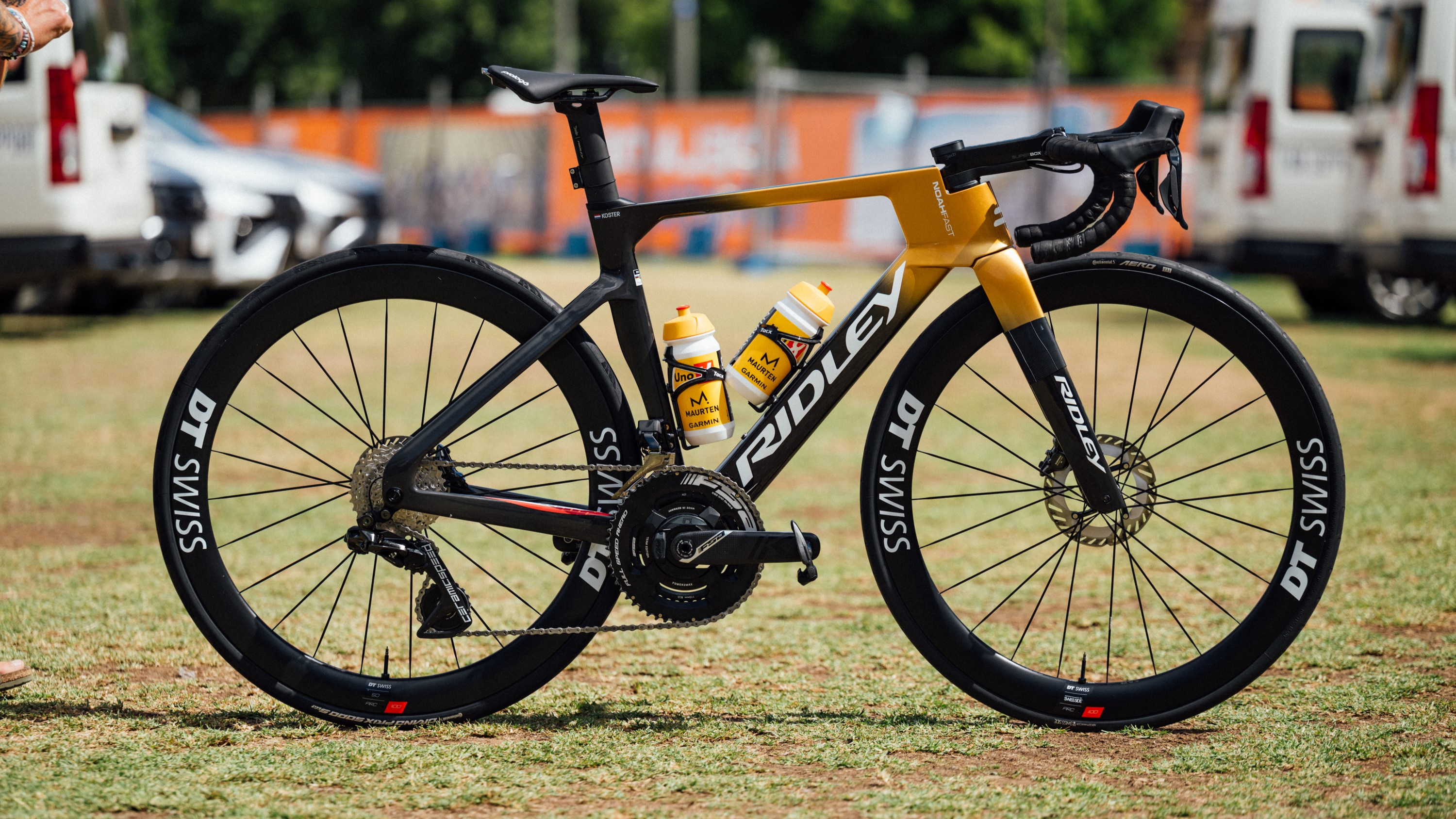
Team morale comes not only from a common national identity and a good relationship with the sponsors but also from stability. There's a feeling of a changing of the guard a little at the top of the sport. New teams with lofty, long-term ambitions are arriving on the scene.
The likes of Q36.5 and Tudor Pro Cycling are, along with Uno-X, biting at the heels of long-established outfits, with ambitions for grand tours and monuments alike. Reliable sponsor backing allows for far better long-term planning, which then feeds into a more relaxed team culture.
Ridley, for example, has agreed to sponsor Uno-X for 10 years, which is definitely outside the norm for equipment sponsors, especially those of smaller teams. How does Hushovd see Uno-X in the context of the other upstart teams?
"I mean all of these teams have a good backing, and then it's obviously easier than if you have to spend the time looking for new partners every year, or every second year. Also, when you have that, you can give the confidence to your staff or to the people working for you that this is a long-term project," Hushovd said.
"You don't have to be afraid for your job every year. I think that that helps to just build a good structure for a long time. You cannot just put something together and now we will try to be like a good team, and we win a lot of races.
"If you look at Visma now, OK, maybe they're a little bit down compared to the way they've been, but that's a team that has built up over a long time."
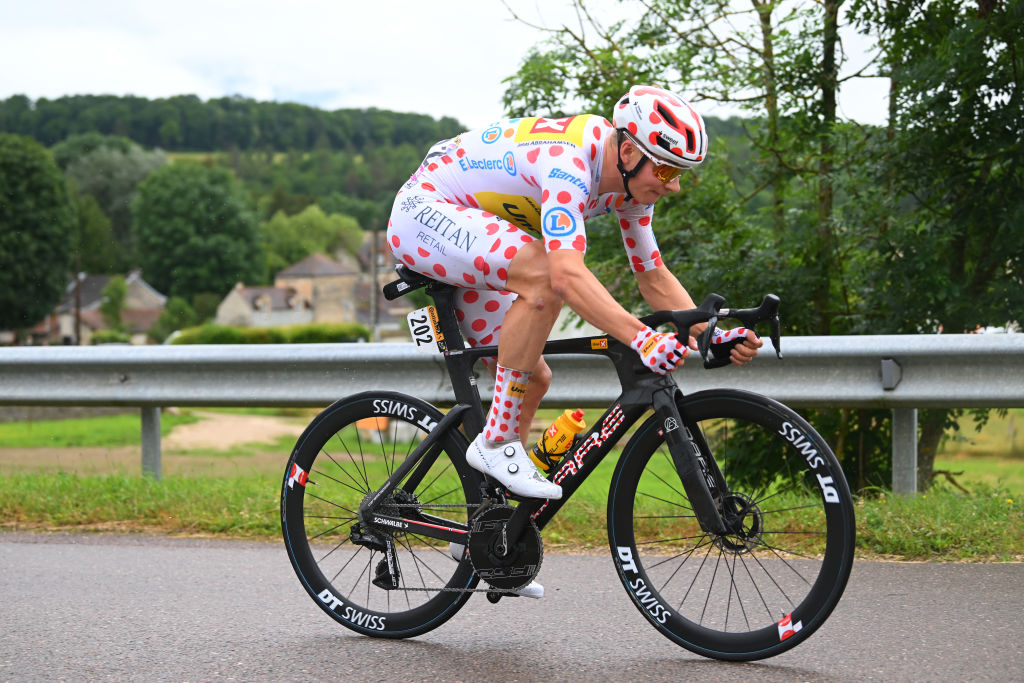
A key point of difference for the team is the approach to diet. Some teams are distinctly old school, with a focus on dropping weight in an effort to tip the balance of watts per kilo in their favour.
Last year at the Tour de France, Jonas Abrahamsen broke out as the key breakaway star, at once illuminating the often cagy first week with his steadfast attacking style and wearing the polka dot jersey for 10 days. While this in itself isn’t necessarily a compelling story, the fact that he’d gained 20kg in order to perform better was enough to cut through the constant background hum of endless weight loss.
There are slighter riders on the roster, but looking at the likes of Alexander Kristoff, Søren Wærenskjold, Abrahamsen, Rasmus Tiller, et al there’s a solid core of larger, more powerful riders. Is there a deliberate attempt to increase rider weight more generally, or, like the team culture, is it a happy accident?
"It's about giving them the optimized fueling, the fueling they need to get the best out of themselves. It's not about how much you weigh on the scale or the fat percentage," said Hushovd.
"Take Søren Wærenskjold, he needs the power. To have that power, he needs energy, and then he needs to eat a lot. If he loses one or two kilos, he will probably climb better up some climbs, but he will not have that power. So it's all about finding the perfect and optimized fueling.
"We want to have healthy riders because if you're healthy, you're obviously going to deliver, and you're going to perform for a much longer period of time. We work a lot with altitude training, but more in the future. And it's proven that if you are at altitude camp and you are unhappy, there's almost no benefit.
"But if you're in the altitude and you like to be there, and you're happy, then you have the advantage you need.”
Being healthy is one thing, but unfortunately for the Norwegian majority of the team, the national climate isn’t necessarily conducive to optimal training. With national identity being important to the team – something Hushovd assures me is going to continue regardless of any team growth and success in the future – key riders are advised against remaining in Norway for the winter.
“The main reason? It's because sometimes we have people injured. Riders get a sore back. Why do you have a sore back? Maybe because one day you go on a cyclocross bike, one day on the road bike, one day maybe on a mountain bike, or you're sitting inside doing three, four hours on the rollers because of the weather conditions," he said.
"If you're going to try to beat Mathieu van der Poel, where does he train and live the whole winter? In Spain. If it's proven that it's good to ride a lot on the home trainers, I'm sure a lot of the best riders in the world will do that, but I never see anyone do that.
"I think if you're going to be one of the best riders, you have to train where you can actually ride your bike, and specifically the bike you race on, and you can only do that where the roads are clear. You can do it in Belgium, but it's easier to do it in Spain."
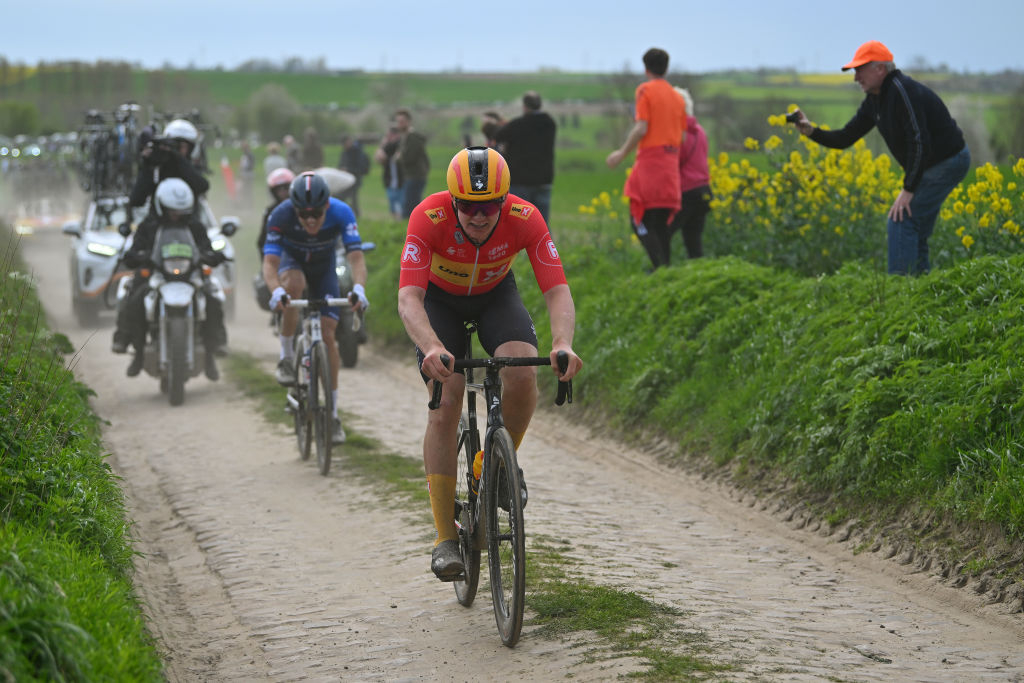
While the team is relatively fresh, lacking the tried-and-tested mentality of those that have been doing it for decades at times, perhaps this freshness can also be of benefit?
Unburdened by tradition, perhaps coming into the season with fresh eyes can make all the difference. As Hushovd explains, not being jaded is key, but also, as a new team they can constantly move the goal posts, giving the squad new carrots to chase without the stick of media backlash that bigger teams face when they don't get the results that are expected of them.
"You need to come up with new things to give you motivation, for something to strive for, something to try to reach, for new goals. So, yes, I think it helps. But also, hopefully, in 10 years, we will have done 12 or 13 Tours de France, so you have to change your goals," Hushovd said.
"One year you go to try to win a stage, and next year you say, God, maybe we can go for the green jersey. And then suddenly, three years later, maybe there's a huge talent arriving, and then maybe there's a yellow jersey, and then you're going to build on that."
A yellow jersey is certainly a lofty ambition, but looking more closely at the calendar, we are in the midst of a Classics season where things are dominated by a pair of generational talents.
Søren Wærenskjold certainly showed what's possible by taking the win at Omloop Het Nieuwsblad, but the Tour of Flanders and Paris-Roubaix are different beasts entirely. How, then, does a team that by any measure would be classed as an underdog, go into these races with a positive mentality?
"You go in there with a mentality that everything is possible. And it is. And that's the beauty of cycling. If you start a race at the bottom of a hill next to the Pogačar and you just have to ride up one hill, you know, it's almost impossible to win.
"But when you have to race 260 kilometres, there's 100 scenarios that might happen. And even then, if you predict these scenarios, I'm sure that the race will not end up like one of these 100 because there are so many things going on. And this, we've seen over and over again. Who would guess that Powless would win [at Dwars door Vlanderen]?
"You have to play your cards. And you cannot sit and wait for Tadej Pogačar or Mathieu van der Poel, because if it's head to head against them, it's difficult. That's why you have to race a bit differently."
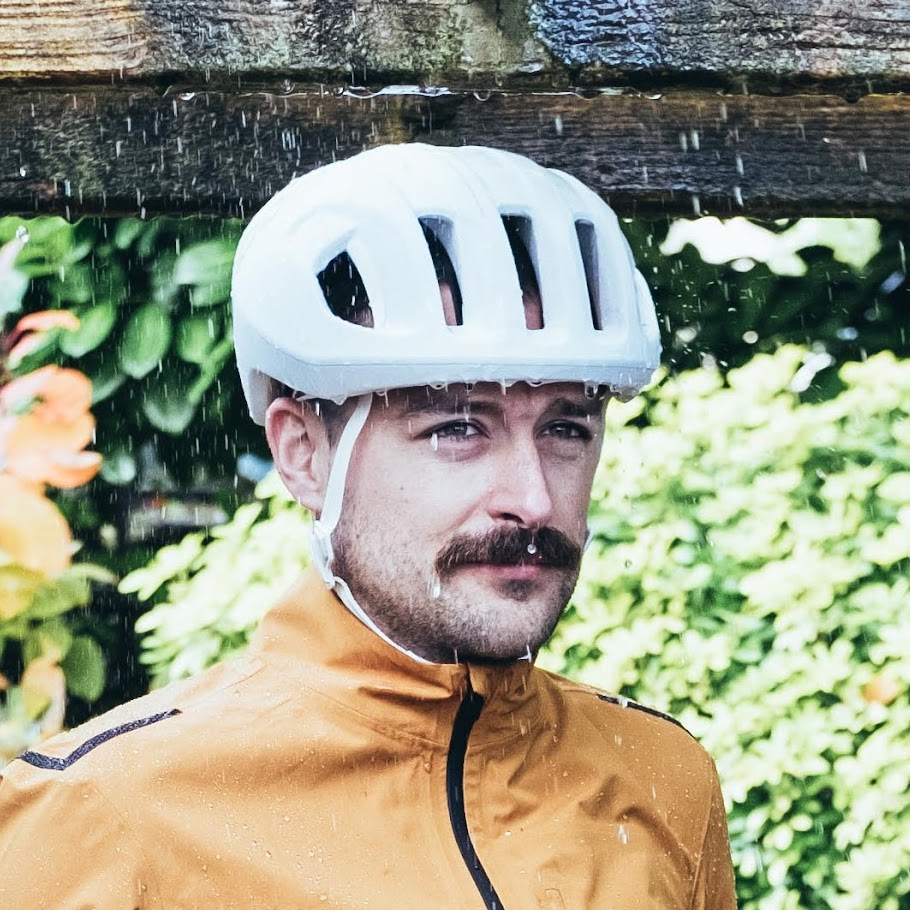
Will joined the Cyclingnews team as a reviews writer in 2022, having previously written for Cyclist, BikeRadar and Advntr. He’s tried his hand at most cycling disciplines, from the standard mix of road, gravel, and mountain bike, to the more unusual like bike polo and tracklocross. He’s made his own bike frames, covered tech news from the biggest races on the planet, and published countless premium galleries thanks to his excellent photographic eye. Also, given he doesn’t ever ride indoors he’s become a real expert on foul-weather riding gear. His collection of bikes is a real smorgasbord, with everything from vintage-style steel tourers through to superlight flat bar hill climb machines.
You must confirm your public display name before commenting
Please logout and then login again, you will then be prompted to enter your display name.